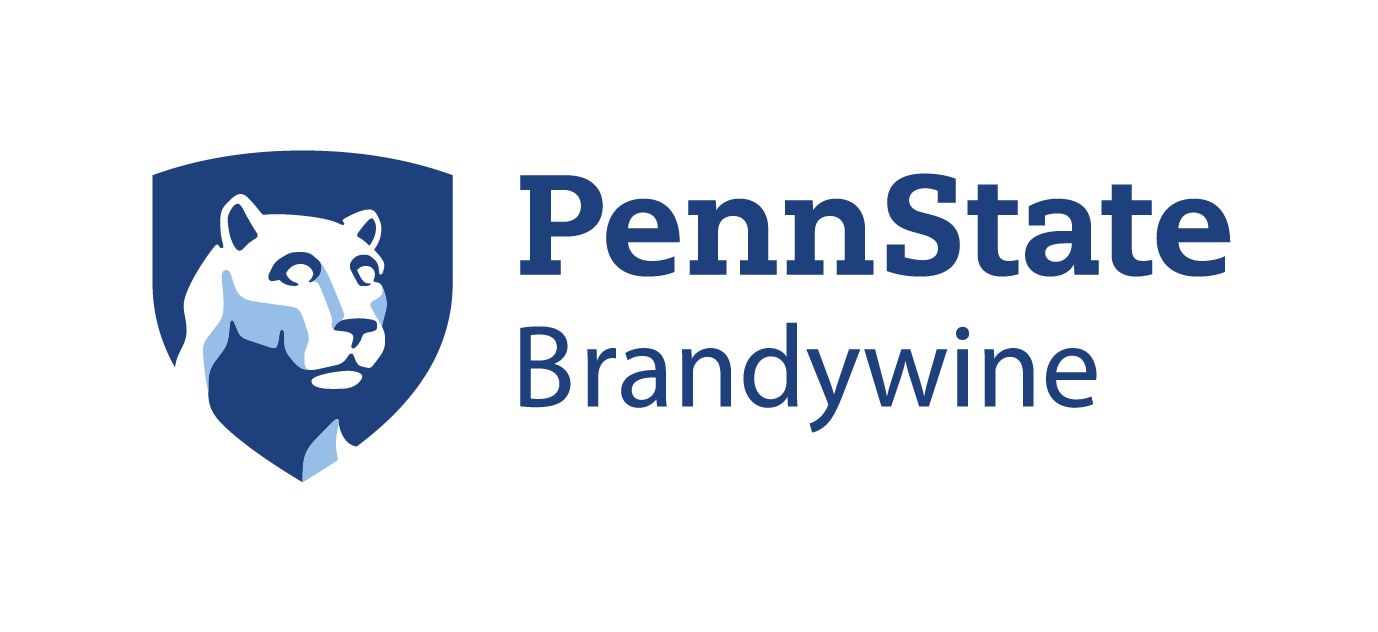Launch and Learn – Entrepreneurial Workshop Series
Launch & Learn Series
Entrepreneurs Building Bold Businesses
This 10-workshop series guides early-stage entrepreneurs through the critical steps of building a business. Each workshop is designed to be practical, hands-on, and tailored to the unique challenges of early-stage founders.
Participants will learn how to brainstorm business ideas, validate their concepts, build a brand, acquire customers, manage finances, and more. Along the way, they’ll gain access to mentorship, industry connections, and ongoing support to ensure their venture has the strongest possible foundation.
By the end of the series, entrepreneurs will have a validated business concept, a clear plan for growth, and the confidence to continue building.
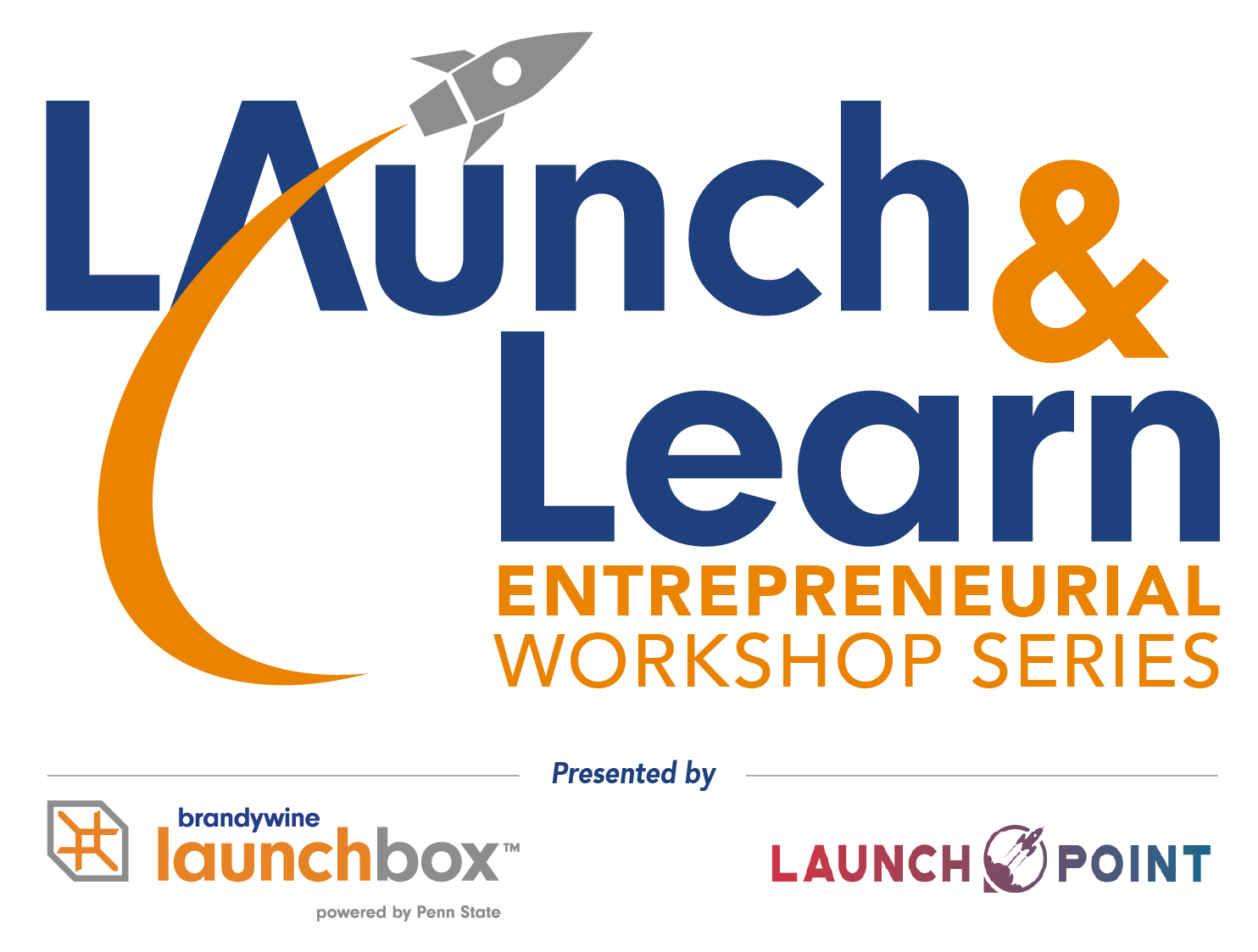
Past Workshops
Past Workshops topics are listed below. Look for these workshops in 2025!
#1 - Unlocking Ideas: Brainstorming and Validating Your Business
Overview:
Entrepreneurs will dive into the process of turning ideas into viable business concepts. We’ll explore techniques to generate fresh, marketable ideas and methods to quickly validate those ideas through customer feedback. The goal is to ensure entrepreneurs are solving real-world problems that people are willing to pay to solve.
Participants will learn how to:
- Brainstorm effectively using structured ideation techniques like mind mapping, SCAMPER, and problem-based thinking.
- Identify pain points in potential markets by conducting simple customer discovery interviews.
- Quickly test their ideas with low-cost validation methods, including surveys, online research, and direct customer interactions.
By the end of the workshop, entrepreneurs will have a clear understanding of the problem their business aims to solve and initial feedback from potential customers on whether their idea addresses a real need.
Key Takeaways:
- How to generate business ideas based on market demand.
- Techniques to validate ideas before investing significant time or resources.
- Early-stage customer discovery techniques to test assumptions.
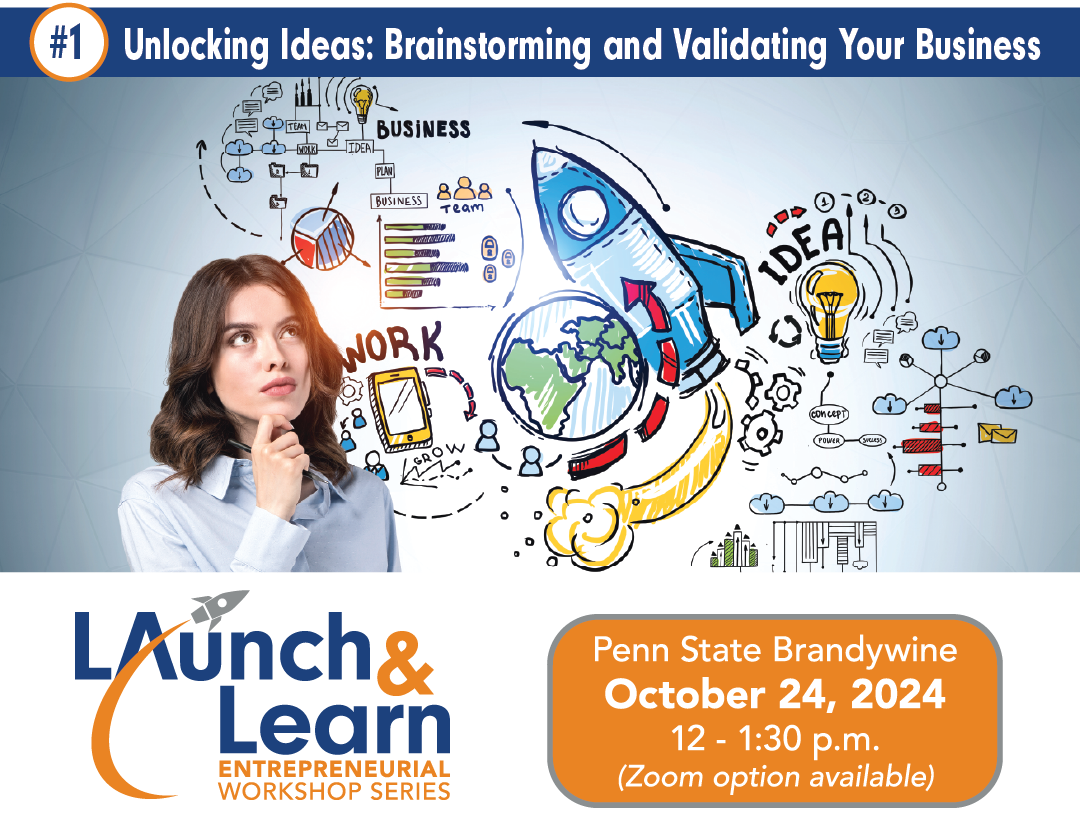
#2 - Crafting a Lean Business Model
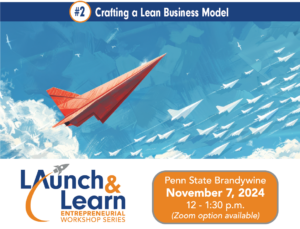
Overview:
Entrepreneurs will learn how to structure their ideas into a simple and effective business model using the Lean Canvas. This session focuses on creating a one-page business plan that outlines the essential components of their business, allowing for flexibility and quick iterations as the market evolves.
Participants will break down their business into key areas, including:
- Identifying target customer segments.
- Defining the problem they’re solving and how their solution is unique.
- Outlining revenue streams and cost structures.
- Establishing their unique value proposition.
The workshop is designed to help entrepreneurs avoid overcomplicating their business plan and instead focus on the elements that will drive early success. This simple yet comprehensive approach enables them to pivot quickly if necessary.
Key Takeaways:
- How to build a Lean Canvas to visualize the entire business on one page.
- Clarifying the problem, solution, and customer segments.
- Understanding revenue streams and cost structures to create a sustainable business model.
#3 - Know Your Customer: Defining Your Market
Overview:
Entrepreneurs will focus on one of the most critical aspects of building a business: understanding their customers. This session will dive into how to define the target audience and conduct market research that helps entrepreneurs gain deep insights into their customers’ needs, preferences, and pain points.
Participants will learn how to:
- Segment their market by identifying different groups of potential customers.
- Develop detailed customer personas to represent their ideal buyers.
- Conduct simple but effective market research using surveys, interviews, and competitor analysis.
- Analyze the data to refine their business model and offerings.
The goal is for entrepreneurs to move from broad assumptions to clear, data-driven customer insights that will guide their marketing, sales, and product development strategies.
Key Takeaways:
- Techniques for identifying and segmenting target customers.
- How to create detailed customer personas.
- Simple methods for conducting market research to validate customer needs and preferences.
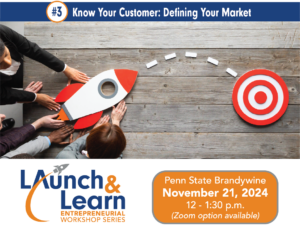
#4 - Building a Brand on a Budget
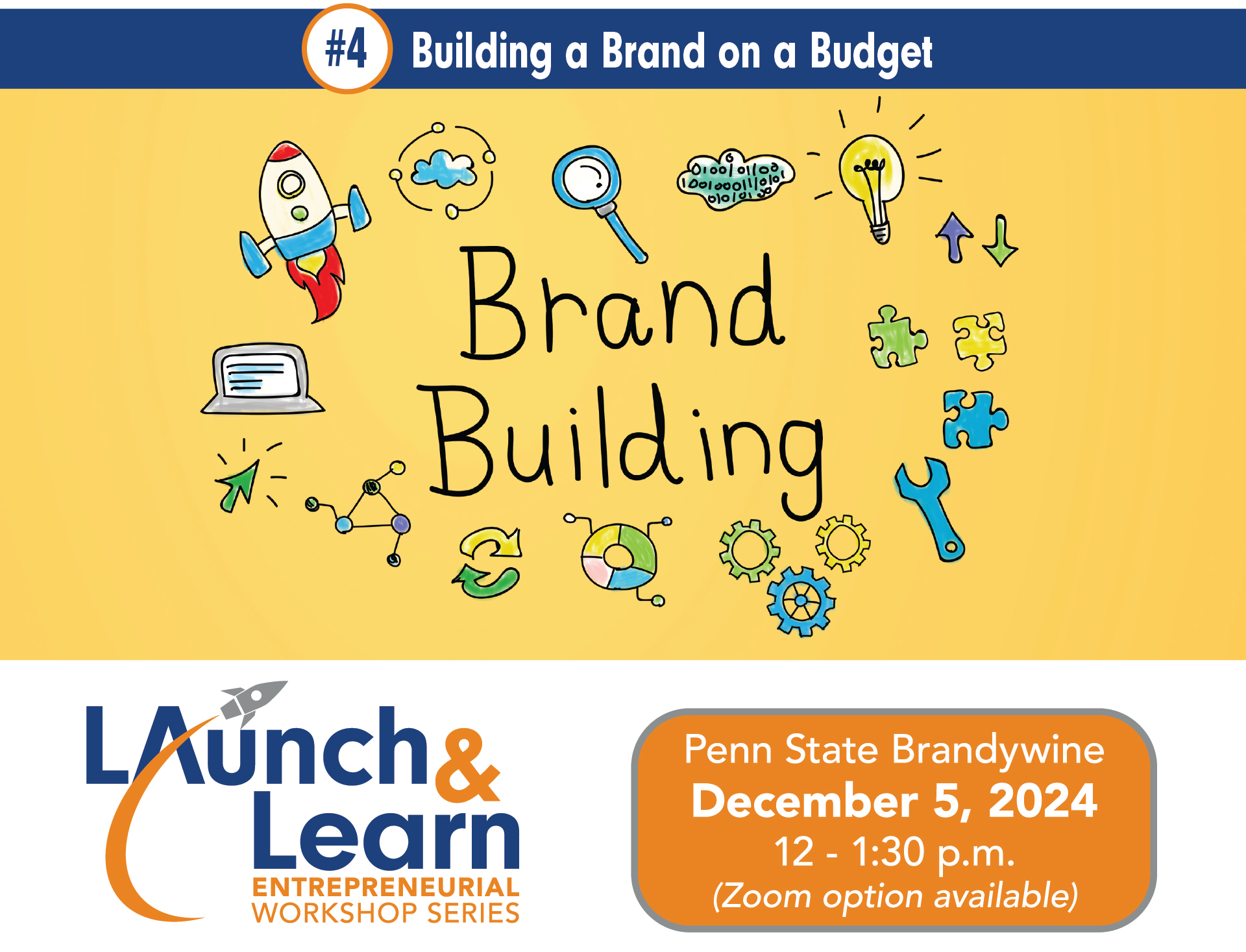
Overview:
During this workshop, the focus shifts to branding—creating a distinct identity that resonates with your target audience without overspending. Entrepreneurs will learn how to build a brand that communicates their business’s unique value and connects emotionally with customers, even if they’re working with minimal resources.
Participants will explore:
- The elements of a brand: logo, colors, fonts, tone, and messaging.
- How to craft a compelling brand story that resonates with their target audience.
- Practical, low-cost branding strategies, from DIY design tools to grassroots marketing.
- How to build an online presence through a simple website and social media channels.
By the end of this workshop, entrepreneurs will understand how to create a consistent brand image and message that strengthens customer loyalty, all while staying within a startup budget.
Key Takeaways:
- Creating a strong, memorable brand identity on a limited budget.
- Crafting a brand story that communicates value and builds connection.
- DIY branding tools and tactics to enhance online and offline presence.
#5 - Prototyping and Testing: Building Your MVP
Overview:
Entrepreneurs will focus on developing their Minimum Viable Product (MVP), the simplest version of their product or service that solves the core problem for customers. This workshop is all about building something quickly that can be tested in the market, gathering real feedback, and using that data to improve the offering.
Participants will learn how to:
- Identify the essential features and functions their MVP needs to provide value.
- Develop a step-by-step plan to build and launch the MVP.
- Test the MVP with early customers, using feedback to refine and iterate.
- Collect actionable insights from early users to improve their product/service before a full-scale launch.
The goal is to help entrepreneurs get their idea into the hands of customers as quickly as possible, allowing them to gather feedback and make informed decisions before investing too much time or money into development.
Key Takeaways:
- How to define the core features of an MVP.
- Building and launching an MVP with a focus on rapid iteration.
- Collecting feedback and using data to improve the product/service before scaling.
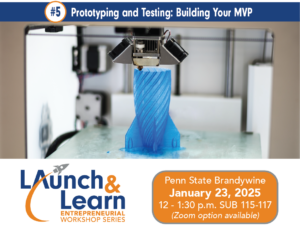
#6 - Marketing 101: Getting Your First Customers
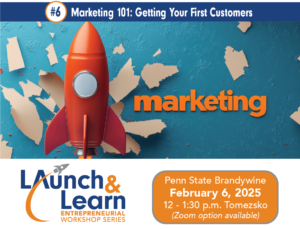
This workshop has been rescheduled to April 17, 2025 at 12 p.m.
Overview:
During this workshop, the focus is on building a marketing strategy to attract and engage your first customers. This workshop covers the fundamentals of digital and grassroots marketing, giving entrepreneurs practical, actionable tactics to create buzz, generate leads, and convert those leads into paying customers.
Participants will explore:
- Develop a basic marketing strategy tailored to early-stage startups.
- Identify and leverage the right customer acquisition channels (social media, email, partnerships, etc.).
- Create compelling messaging and content that resonates with their target audience.
- Build an effective, low-cost digital presence using social media, content marketing, and SEO.
By the end of this session, entrepreneurs will understand how to build a marketing foundation that grows their customer base and creates momentum for their business.
Key Takeaways:
- How to build a customer acquisition strategy that works for early-stage businesses.
- The essentials of digital marketing, including social media, email, and SEO.
- Low-cost marketing tactics that generate leads and drive conversions.
#7 - Financial Basics: Managing Money and Resources
Overview:
This workshop dives into the financial foundation every entrepreneur needs to build a sustainable business. This session focuses on understanding key financial concepts, managing cash flow, and creating simple financial projections. Entrepreneurs will learn how to keep their business financially healthy from day one, even with limited resources.
Participants will cover:
- The basics of budgeting and tracking expenses.
- How to create financial projections, including revenue, expenses, and cash flow forecasting.
- Key financial terms and concepts every entrepreneur should know (profit margin, breakeven point, runway, etc.).
- Different funding options, from bootstrapping to grants, loans, and angel investment.
The workshop is designed to give participants practical financial skills they can apply immediately, with templates and tools for budgeting and cash flow management.
Key Takeaways:
- How to create a budget and manage cash flow.
- Developing financial projections to guide decision-making.
- Understanding different funding options and when to seek outside capital.
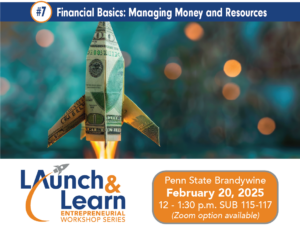
#8 - Sales Fundamentals for Founders

Overview:
During this workshop, the focus shifts to sales—the critical skill of turning leads into paying customers. Entrepreneurs will learn how to build a sales strategy that works for their business, focusing on how to pitch their product or service, close deals, and build long-lasting customer relationships. Since many early-stage founders are their own salespeople, this session is designed to give them confidence and practical tools to sell effectively.
Participants will learn:
- How to develop a simple, repeatable sales process.
- The art of pitching: crafting a compelling, clear sales pitch that addresses customer pain points.
- Techniques for handling objections and closing sales.
- Building customer relationships that lead to long-term loyalty and referrals.
By the end of this workshop, entrepreneurs will understand how to navigate the sales process with confidence, turning conversations into conversions and building a foundation for long-term customer retention.
Key Takeaways:
- Developing a sales strategy that fits your business model.
- Crafting and delivering a persuasive sales pitch.
- Techniques to overcome objections and close sales with confidence
#9 - Scaling Up: Managing Growth
Overview:
During this workshop, the focus is on how to manage growth and scale a business effectively. Entrepreneurs will explore strategies for scaling their operations, managing increased demand, and building the systems needed to sustain growth. This workshop is designed to help founders navigate the complexities of growing their business without losing control or sacrificing quality.
Participants will learn how to:
- Identify key areas of the business that need to scale, such as operations, production, or customer support.
- Develop scalable systems and processes to handle increased demand.
- Build a team or outsource tasks to ensure smooth growth.
- Maintain the company’s core values and product quality during rapid expansion.
By the end of this session, entrepreneurs will have a clear plan for how to grow their business sustainably, without compromising what makes their business unique.
Key Takeaways:
- How to create systems and processes that can scale with your business.
- Identifying key growth levers and prioritizing resources for scaling.
- Strategies for building a team and managing operations as demand increases.

#10 - Building a Resilient Entrepreneurial Mindset

Overview:
The final workshop is all about the mindset required to thrive as an entrepreneur. Building and growing a business is a long and challenging journey, so entrepreneurs need mental resilience and emotional intelligence to stay motivated through setbacks, failures, and successes. This session focuses on practical strategies for developing a strong entrepreneurial mindset that can handle the ups and downs of the business world.
Participants will explore:
- How to maintain motivation and focus, even in the face of obstacles.
- Techniques for managing stress, avoiding burnout, and maintaining work-life balance.
- The importance of flexibility and adaptability in the entrepreneurial journey.
- Building a support network of mentors, peers, and advisors to help them navigate challenges.
By the end of this workshop, entrepreneurs will be equipped with the tools and mindset to remain resilient, confident, and adaptable as they continue to grow their businesses.
Key Takeaways:
- Techniques for building mental resilience and staying focused.
- How to manage stress, avoid burnout, and maintain balance.
- The importance of adaptability and support networks in entrepreneurship.
